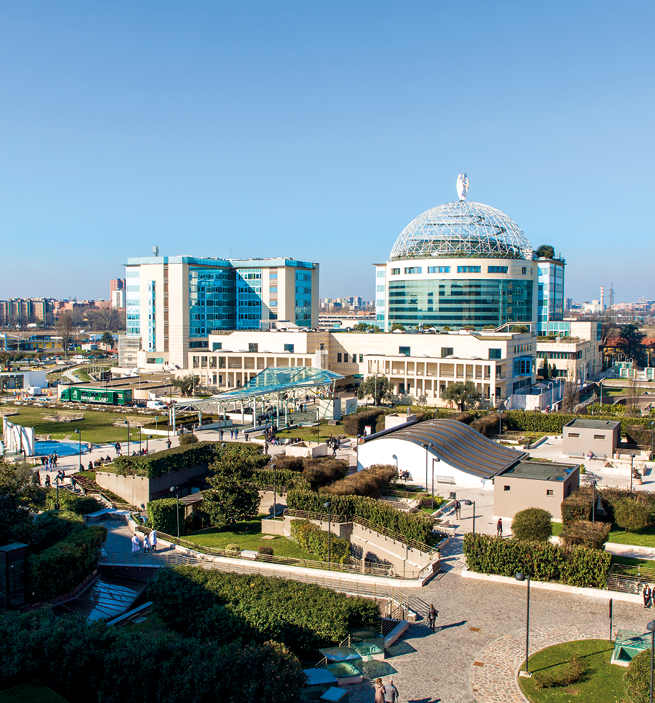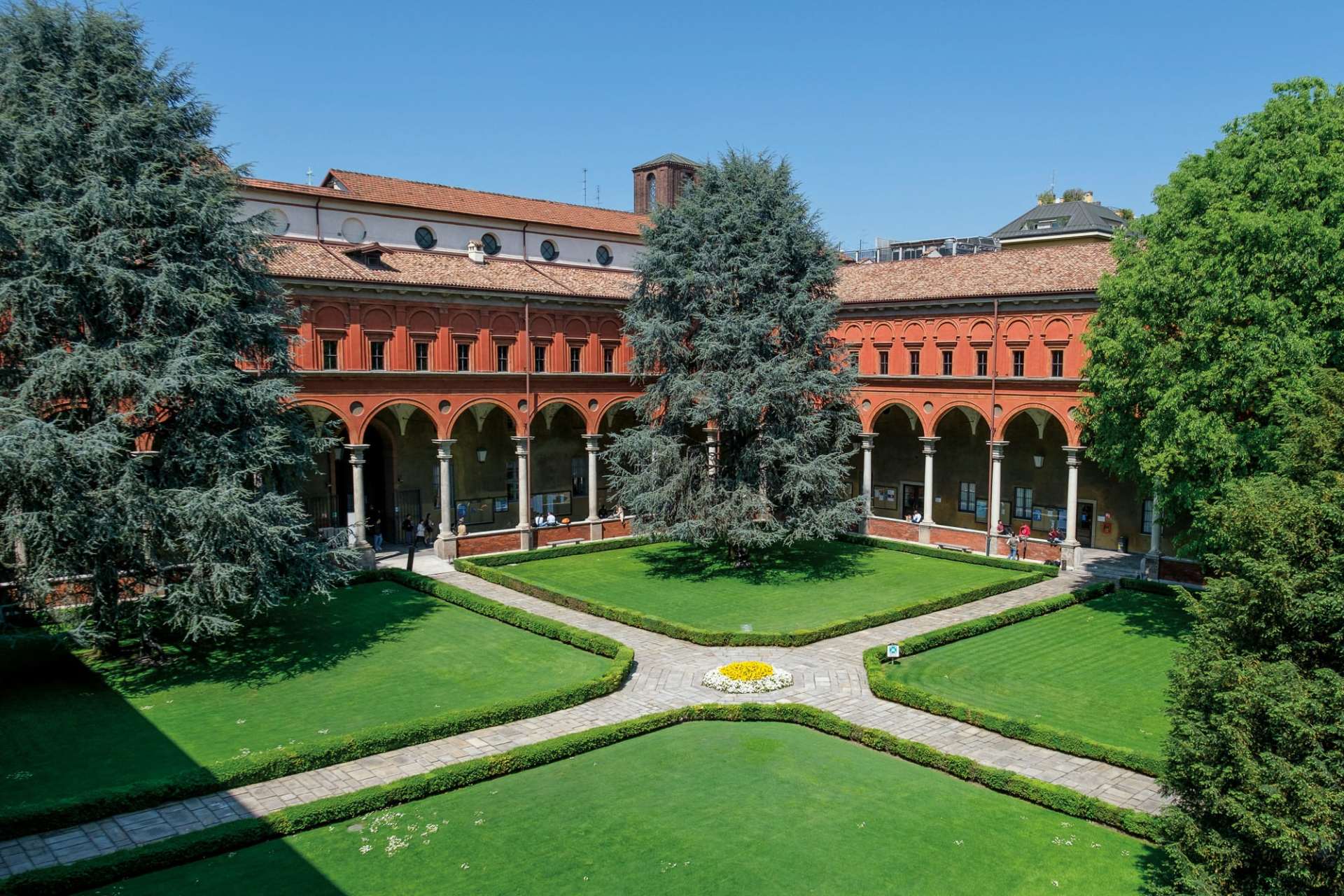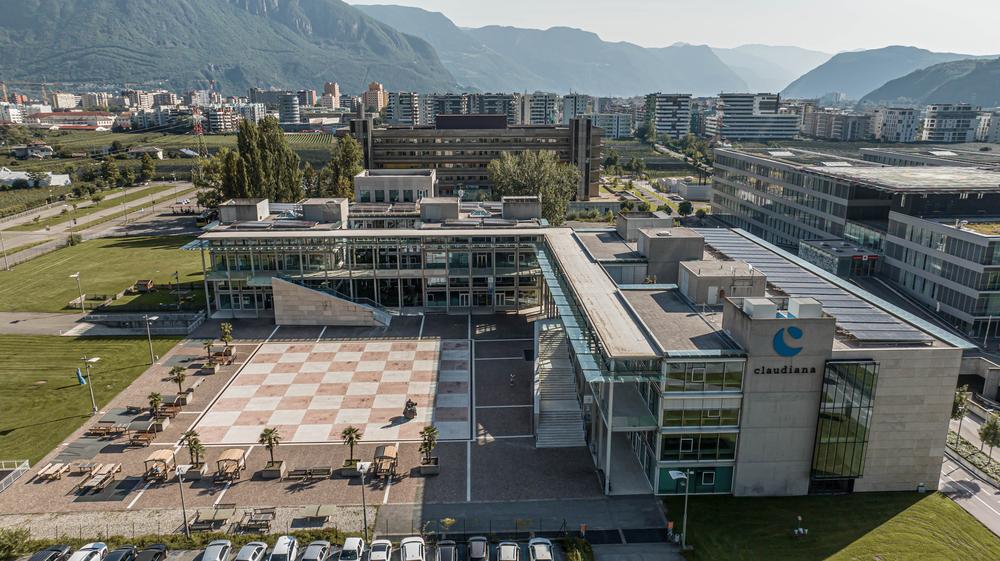The Complete Guide to Private Medical Schools in Italy
An in-depth analysis of tuition, admissions, scholarships, and strategic choices for Italy's elite English-taught private medical programs.
Explore the UniversitiesPublic vs. Private: A Strategic Comparison

| Factor | Public Universities | Private Universities |
|---|---|---|
| Admissions Test | National IMAT exam | University-specific proprietary exams (HUMAT, UCAT-ext, etc.) |
| Tuition Fees | Low & income-based (ISEE) (€156 - €5,000 / year) | High & fixed flat-rate (€15,000 - €23,156+ / year) |
| Scholarships | Primarily need-based (DSU regional aid) | Almost exclusively merit-based, tied to entrance exam scores |
| Class Size | Larger cohorts (80-150+ students) | Smaller, more intimate classes (40-100 students) |
| Campus & Facilities | Often historic buildings in city centers, facilities can vary | Typically modern, purpose-built campuses with cutting-edge labs and technology |
| International Focus | Growing international community, but primarily Italian student body | Very high percentage of international students, curriculum designed for a global audience |
In-Depth University Profiles

Milan
Humanitas University (Hunimed)
A highly modern, research-focused university integrated with the world-renowned Humanitas Research Hospital. Known for its international environment and strong emphasis on practical, clinical skills from day one.
Who is this for? (The Vibe)
If you thrive in a cutting-edge, highly competitive, and research-intensive environment, Humanitas is a top choice. The direct integration with a leading hospital is its biggest advantage.
Scholarship Deep Dive
Offers some of the most generous merit-based scholarships in Italy for non-EU students (€18,000/year), awarded automatically to the top-ranking candidates of the HUMAT exam.

Milan
Vita-Salute San Raffaele University
Located within the San Raffaele Hospital complex, one of Europe's largest and most advanced biomedical research parks. The program is known for its strong focus on translational medicine, bridging lab research with clinical practice.
Who is this for? (The Vibe)
San Raffaele offers an immersive experience in a high-tech biomedical hub. It's ideal for students fascinated by the intersection of clinical care and pioneering research.
Scholarship Deep Dive
Scholarships are less centralized. Primarily participates in the regional need-based DSU scholarship program. Occasional, smaller merit awards may be available.

Rome
Università Cattolica del Sacro Cuore (Rome)
The medicine program is hosted at the Rome campus and is intrinsically linked to the Fondazione Policlinico Universitario Agostino Gemelli IRCCS, a massive, internationally recognized university hospital.
Who is this for? (The Vibe)
Offers a blend of tradition and vast clinical exposure. Being part of one of Italy's largest hospitals provides an unparalleled variety of clinical cases. The atmosphere is more traditional than Milan's newer private schools.
Scholarship Deep Dive
Participates in the Lazio region's DSU need-based aid. Merit-based scholarships for international students are limited and should be checked annually on the university website.

Rome
Campus Bio-Medico University of Rome
A university that emphasizes a holistic, person-centered approach to medicine, integrating science and technology with ethics and compassionate care. It has a modern campus and a close-knit community.
Who is this for? (The Vibe)
Ideal for students who value a strong ethical foundation and a supportive, community-focused learning environment alongside rigorous scientific training. It's a smaller, more intimate alternative to the larger Rome-based universities.
Scholarship Deep Dive
Offers several merit-based scholarships that can cover a percentage of the tuition fees (e.g., 50% reduction). Also participates in the regional DSU need-based aid program.

Rome & Venice
UniCamillus - Saint Camillus International University
A university with a specific humanitarian mission, aimed at training doctors with a focus on diseases prevalent in developing nations. Offers a unique 'forgivable loan' scholarship model.
Who is this for? (The Vibe)
This is a mission-driven university. It's the perfect fit for students with a strong humanitarian drive who plan to practice medicine in underserved regions after graduation.
Scholarship Deep Dive
The 'Honours Student Loan' covers full tuition but requires graduates to practice in their home country (or a similar one) for at least three years to be forgiven. This is a major career commitment.

Bolzano
Università Cattolica del Sacro Cuore (Bolzano - Med-IT)
A new, innovative program run by Cattolica University in partnership with the Claudiana campus in Bolzano. It focuses on technology-driven medicine and is taught in a unique trilingual region (German, Italian, English), offering a distinct cultural experience.
Who is this for? (The Vibe)
Perfect for students interested in medical technology, digital health, and a unique cross-cultural environment in the heart of the Alps. The smaller class size and new curriculum offer a pioneering experience.
Scholarship Deep Dive
As a new program, specific scholarship details are still emerging but it is expected to align with Cattolica's main campus and participate in regional aid for the Province of Bolzano.
2025 Admissions Snapshot
The following information for the 2025/2026 admissions cycle is based on the latest university announcements. Deadlines are critical and subject to change, always verify on the official university website.
San Raffaele University - Detailed Admissions
Exam: San Raffaele Test (60 questions, 80 mins). 36 logic/comprehension, 24 science.
Application: Jan 15 - Feb 26, 2025.
Exam Dates: March 5 & March 26, 2025 (best score counts).
Scoring: +1 for correct, -0.25 for incorrect.
2024 Stats: 291 non-EU applicants for 64 spots (4.5x competition), lowest score was 38.75/60.
Enrollment: Admitted students must pay a €1,500 non-refundable deposit by April 16, 2025.
Humanitas University (Medicine) - Detailed Admissions
Exam: HUMAT Test (60 questions, 120 mins). 30 Scientific Thinking, 30 Academic Literacy.
Application: Oct 21, 2024 - Jan 28, 2025 (for 1st round).
Exam Dates: Feb 5 & Feb 26, 2025 (best score counts).
Scoring: +3 for correct, -1 for incorrect. Minimum score of 20 required in EACH section.
2024 Stats: Lowest score for non-EU was 76/180.
Enrollment: Admitted students must pay a €5,156 first installment by March 24, 2025.
Tech Requirements: Requires both a computer (with webcam) and a smartphone/tablet for online proctoring.


The Real Cost: Estimated Annual Budget
Tuition is only part of the picture. Here’s a realistic budget for a student at a private university in a major city like Milan or Rome.
- Average Tuition Fee €18,500
- Accommodation (12 months) €7,200
- Living Expenses (Food, Utilities) €4,800
- Health Insurance & Permit €250
- Books, Supplies & Regional Tax €550
- Estimated Total Per Year≈ €31,300
Frequently Asked Questions
Are the private university entrance exams harder than the IMAT?
Not necessarily "harder," but different. The IMAT is standardized and predictable. Private university tests can vary year-to-year. They often contain more logic and critical thinking puzzles (HUMAT) or behavioral assessments (UCAT-ext) and may require a different preparation strategy. They are generally less focused on rote memorization of science facts compared to the IMAT.
Is a degree from a private university as valuable as one from a public one?
Yes, absolutely. All Italian medical degrees, public or private, are conferred by the Italian Ministry of Education and are fully recognized across the EU and worldwide. The quality of education at top private universities like Humanitas and San Raffaele is considered exceptional, and their strong hospital connections can be a significant advantage for clinical training and future residency applications.
Can I get need-based (DSU) scholarships at private universities?
Yes, but it's more complex. Private university students are eligible to apply for regional DSU aid. However, the number of available grants is limited, and the process requires extensive financial documentation (ISEE Parificato). While possible, it's less common and shouldn't be the primary financial strategy. The main scholarship route for private universities is through merit-based awards from the university itself.
What are the 'hidden costs' I should be aware of?
Beyond the budget outlined above, consider these one-time or annual costs:
- Entrance Exam Fees: €120 - €170 per attempt. Some universities allow multiple attempts which require separate payments.
- Permit of Stay (Permesso di Soggiorno): ≈ €100 for the application kit and fees upon arrival, renewable annually.
- Security Deposit for Housing: Typically 2-3 months' rent, which you get back at the end of your contract.
- Travel: Initial flight to Italy and any travel during breaks.
